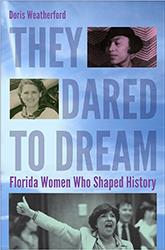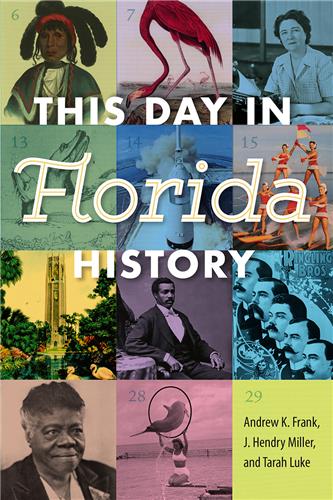This anthology offers perspectives on war, national loyalty, and freedom from a sweeping range of writers including Phillis Wheatley, James Weldon Johnson, Natasha Trethewey, W.E.B. Du Bois, Frederick Douglass, Langston Hughes, Zora Neale Hurston, James Baldwin, Lucille Clifton, Vievee Francis, Michael S. Harper, Ann Petry, Yusef Komunyakaa, Gwendolyn Brooks, and many more.
Buy Books: browse by title
A - B - C - D - E - F - G - H - I - J - K - L - M - N - O - P - Q - R - S - T - U - V - W - X - Y - ZPlease note that while you may order forthcoming books at any time, they will not be available for shipment until shortly before publication date
The untold stories of Florida’s most extraordinary women.
Tyler Gillespie takes readers on an exuberant search for the state behind the caricatures, finding Florida’s humanity: a beautiful mix of hopes, dreams, and second chances.
Long overshadowed by fellow confessional poets Sylvia Plath and Robert Lowell, Anne Sexton seldom features in literary criticism, despite being one of America’s most influential women writers. Now in this much-needed volume Sexton and her poetry are reassessed for the first time in two decades.
Featuring one entry per day of the year, this book is a fun and enlightening collection of moments from Florida history. Good and bad, famous and little-known, historical and contemporary, these events reveal the depth and complexity of the state’s past.
From the vast complexities of a world in which synesthesia is our natural translator, Allan Peterson’s poems convey the consistent message that the ordinary isn’t. Selected from books and chapbooks covering almost thirty years of writing, Peterson’s work draws heavily from landscapes like the Gulf Coast, the sciences, history, and the author’s background in visual arts.
Henry David Thoreau, one of America’s most prominent environmental writers, supported himself as a land surveyor for much of his life, parceling land that would be sold off to loggers. In the only study of its kind, Patrick Chura analyzes this seeming contradiction to show how the best surveyor in Concord combined civil engineering with civil disobedience.
Sheds light on this oft-forgotten theatre of war and details the dynamic racial and cultural factors that led to Florida’s engagement on behalf of the South.
The first full-scale political history of the National Association for the Advancement of Colored People, tracing its struggle for black civil and political equality from its founding in 1909 through the post-civil rights years.











